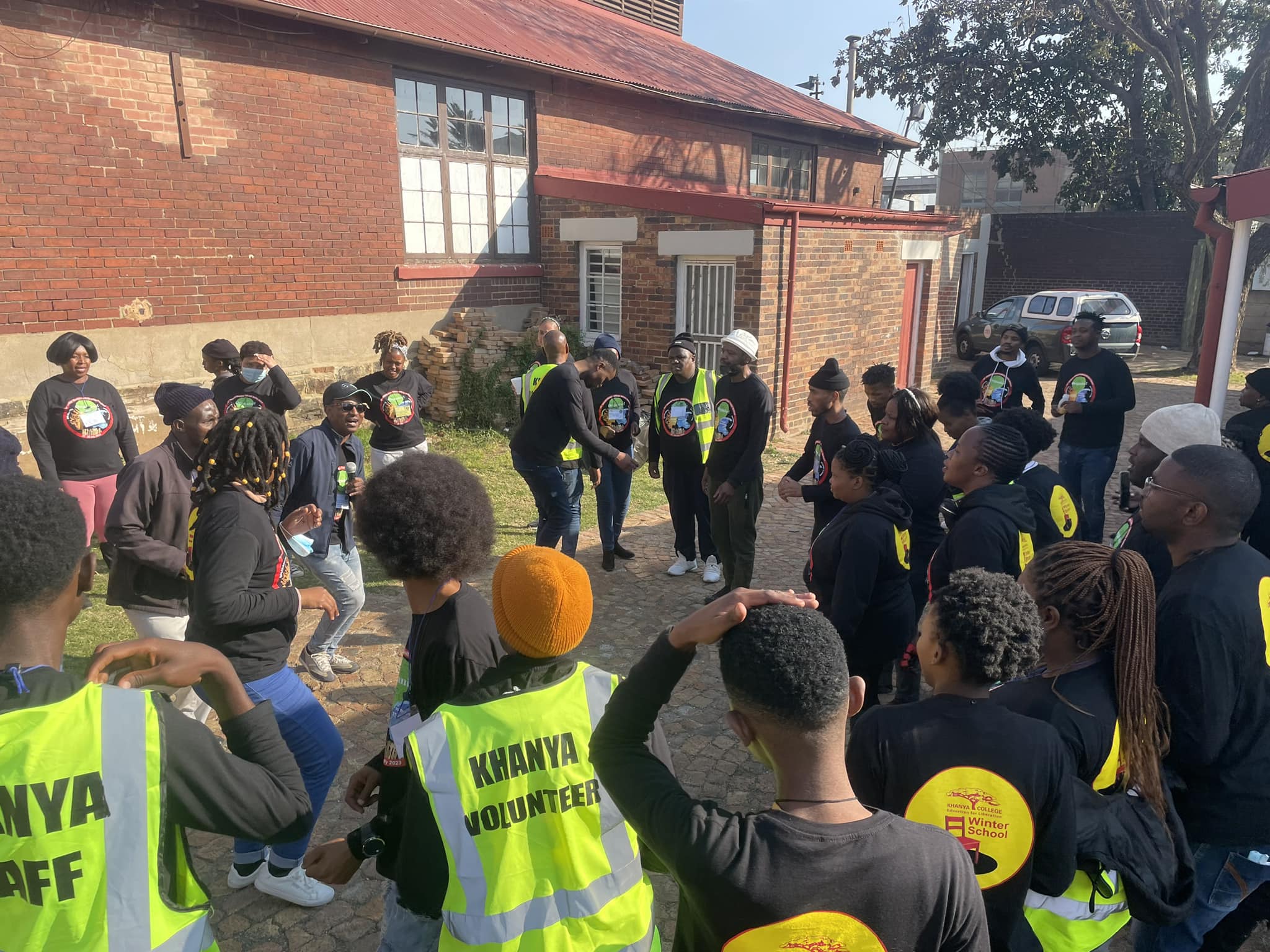In 2024, the City of Johannesburg (COJ) renewed efforts to evict Khanya College from the Workers Museum East Cottage, a space that has long served not only the College but also a wide network of community organisations and NGOs. This move marks the latest chapter in a struggle that spans over two decades, a struggle to preserve cultural spaces for working-class communities amid a growing pattern of neglect and bureaucratic hostility.
Khanya College originally occupied the East Cottage as office space from the 1990s until 2006. When the College voluntarily relocated to 123 Pritchard Street, where it remains based today, it did so not under duress, but with the understanding that the cottage would become a dedicated cultural venue for working-class communities. This intention aligned with the site’s historical and social significance, particularly in a city where such spaces are increasingly scarce—the availability of such open spaces continually disrupted with prolonged closures.
The tension between Khanya College and the City dates back to 2004, when the Johannesburg Development Agency issued eviction notices to both Khanya and the Workers Library – then a separate organisation. Ironically, even then the City acknowledged the importance of the site for cultural use.
Khanya and the Workers Library emphasised that they had already been using the space for exhibitions, conferences, and community meetings. Ultimately, Khanya’s 2006 departure was aimed at enabling the space to function more fully in its cultural role, especially for those with limited access to such venues elsewhere in a safe part of the city, with better security such as the Newtown cultural precinct.
The urgency of protecting such spaces has only grown. Over the years, Johannesburg has witnessed a steady erosion of public cultural infrastructure. Despite government promises to “revitalise cultural and heritage institutions,” closures have become common. In a meeting on 07 March 2025, President Cyril Ramaphosa himself noted the worrying closure of public spaces like the Johannesburg Library, the Metro Centre, and the Johannesburg Art Gallery. Some closures, initially linked to COVID-19 lockdowns, have become semi-permanent. The Brixton swimming pool, for instance, remains closed and deteriorating.
Johannesburg’s decaying infrastructure extends beyond cultural facilities. Public parks, train stations, and municipal buildings are either under-maintained or illegally occupied after years of vacancy. A stark example is the 1954 “Pass Office” building, once a critical part of apartheid-era administration, which caught fire in 2023, killing at least 79 people, many of them migrants. This building, owned by the City, had been taken over by illegal slumlords. Given this track record of neglect, the City’s push to repurpose the East Cottage for administrative use lacks credibility and undermines broader public interest.
Khanya College is not accepting the City’s renewed eviction attempts passively. It views this as a threat not only to its operations but also to the broader working-class community. As Khanya’s Director, Dr Maria Van Driel explains:
“In 2006, Khanya College and civil society won an important victory: instead of demolition, the workers’ compound was transformed into the Workers Museum, the only museum in the country honouring workers. The Museum is one of the few spaces where working people in the City can develop a culture from below, bringing together different organisations, ideas, and forms of expression.”
Since 2021, Khanya has been formally granted use of the East Cottage and has coordinated a range of activities there. More than 69 organisations have used the space, many in partnership with the College. The Cottage and the adjacent Workers Museum have become pillars in the ongoing development of a grassroots culture for and by working class people.
Activities at the cottages have been wide-ranging. Book access programs, reading groups, seminars, and theatre performances have given a platform to township-based artists and intellectuals. Between 2022 and 2023, Khanya hosted numerous cultural workshops attended by township children and out-of-school youth, many of whom would otherwise have no access to central Johannesburg spaces. The cottages have also hosted biodanza sessions and other alternative cultural practices, making them a rare site of inclusive and transformative engagement.
The proximity to the Workers Museum adds further value. The Museum itself was saved from demolition thanks to the efforts of Khanya and its civil society partners. It continues to provide essential historical education. During Khanya’s Winter School this year, participants walked over two kilometres from the College’s Pritchard Street venue to the Museum and cottages. Many were deeply moved by the experience, especially those from other provinces who were encountering the history of Johannesburg’s working class for the first time. The Museum serves not only as a repository of history but also as a bridge to greater understanding and solidarity, particularly with migrant communities whose contributions to the city are often overlooked.
Khanya College is calling on the public to support its efforts to resist the eviction and defend the space. A public consultation will be held on Saturday, 19 July 2025, from 9:00 to 11:00 a.m. at the Workers Museum Cottages, 52 Rahima Moosa Street, Newtown. Community members can attend in person or join online.
Please RSVP by 17 July 2025 via cell: 079 101 5880 or email: info@khanyacollege.org.za. A Zoom link will also be made available on Khanya’s Facebook page.
At stake is more than just a building. The Workers Museum East Cottage is a vital node in Johannesburg’s cultural and political landscape, one that must remain open to the people it was meant to serve.
This article was submitted on 16 July 2025. You may republish this article, so long as you credit the authors and Karibu! Online (www.Karibu.org.za), and do not change the text. Please include a link back to the original article.


 Download PDF
Download PDF